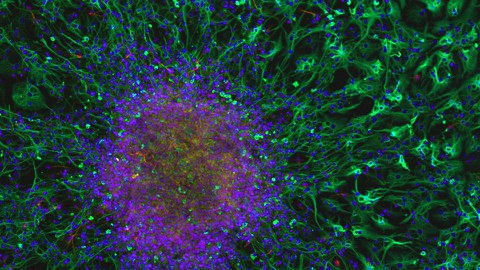Sep 29, 2017
TU Dresden is invited to submit six full applications for Clusters of Excellence in the next round of the Excellence Competition
What an outstanding result! Today, TU Dresden was invited by the German Research Foundation (DFG) to submit six full proposals out of our eight draft proposals for the Clusters of Excellence.
Prof. Hans Müller-Steinhagen, Rector of TU Dresden, congratulates the speakers and scientists of the successful cluster proposals and emphasises the importance for the entire university: “It is a phenomenal success! This decision will give us an additional, strong tailwind for our endeavours in the Excellency Strategy! Now, we shall optimistically enter the full proposals phase and hope that at least two or preferably even more Clusters of Excellence will be granted in the end.“ Two Clusters of Excellence are the prerequisite for a renewed application for the status “University of Excellence”.
The Clusters of Excellence for which full applications are now to be submitted belong to the Research Priority Areas: Health Sciences, Biomedicine and Bioengineering, Smart Materials and Structures, as well as Information Technology and Microelectronics. Since all Research Priority Areas of TU Dresden are interdisciplinarily intertwined, virtually all scientific disciplines are involved in the Excellence competition.
The following Clusters have been invited to submit a full application:
cfaed: Center for Advancing Electronics Dresden
The cfaed has been funded as a Cluster of Excellence since 2012 as part of the Excellence Initiative. It tackles the biggest challenges in the field of electronics. The ever smaller structures of today’s technology will soon reach their physical atomic limits. By using innovative materials and inspired by biology, the cfaed explores novel and pioneering electronics for information processing. The aim is to reduce dimensions, increase speed and energy efficiency, reduce costs and implement new functionalities. The Cluster deploys an integrated approach ranging from molecular base materials to highly integrated processing systems.
DTRC: Dresden Translational Regeneration Cluster
Lifelong health through regeneration research is the guiding principle according to which the cluster intends to explore new treatment and prevention therapies in a holistic approach. The long-term goal of translational regeneration research is to improve the quality of life of patients and thus reduce health expenditure on chronic diseases. The aim is to transfer findings on the regeneration of animals to humans and to lead them to clinical application.
DCM: Centre for Materiomics Dresden
The DCM intends to explore and develop innovative programmable materials. The focus is on technologies and simulation tools that enable the transfer of material properties and functions on a nanoscale to applications on a macroscale – from bits to atoms to systems.
PoL: Physics of Life
To fathom life is one of the greatest and most complex scientific challenges. The Cluster aims to investigate the fundamental issues in cell and developmental biology and initiate a paradigm shift: to create understanding of the underlying biological processes of life as complex physical phenomena.
ct.qmat: Complexity and Topology in Quantum Materials
Innovative materials with specifically tailor-made functions are the basis for progress in virtually all areas of modern technology. ct.qmat places emphasis on quantum mechanisms on the atomic scale, which, in conjunction with topological physics and the chemical and physical complexities, reveals hitherto unprecedented properties and phenomena. This Cluster proposal is submitted in co-operation with the University of Würzburg.
CeTI: Center for Tactile Internet
CeTI aims to expedite the efficient co-operation between man and machine. A future application is the co-working of man and machine with mutual learning. This endeavour requires both new communication technologies in “real time” as well as an understanding of the human body and its reactions.
The CRTD Cluster of Excellence (Center for Regenerative Therapies Dresden) has been receiving funding under the Excellence Initiative since 2006. With a total of two funding phases, it has reached the maximum funding period provided by the Excellence Initiative. Therefore, a renewed application was not possible. However, the CRTD will be permanently financed by the Saxon State Ministry for Higher Education, Research and the Arts as well as by TU Dresden, in order to ensure the seamless continuation of the outstanding scientific work.
For the two projects that due to the strong competition have not been invited to submit full proposals, TU Dresden will now consider whether they can be in part implemented through other funding programmes.
The further timeline for the Excellence Strategy now stipulates that full proposals for the Clusters of Excellence must be submitted by 21 February 2018. The decision pertaining to the Cluster proposals is scheduled for September 2018, so that the Clusters of Excellence will be able to start their operations from the beginning of 2019. In December 2018, the full proposals for the funding line “Universities of Excellence” are then to be submitted.

